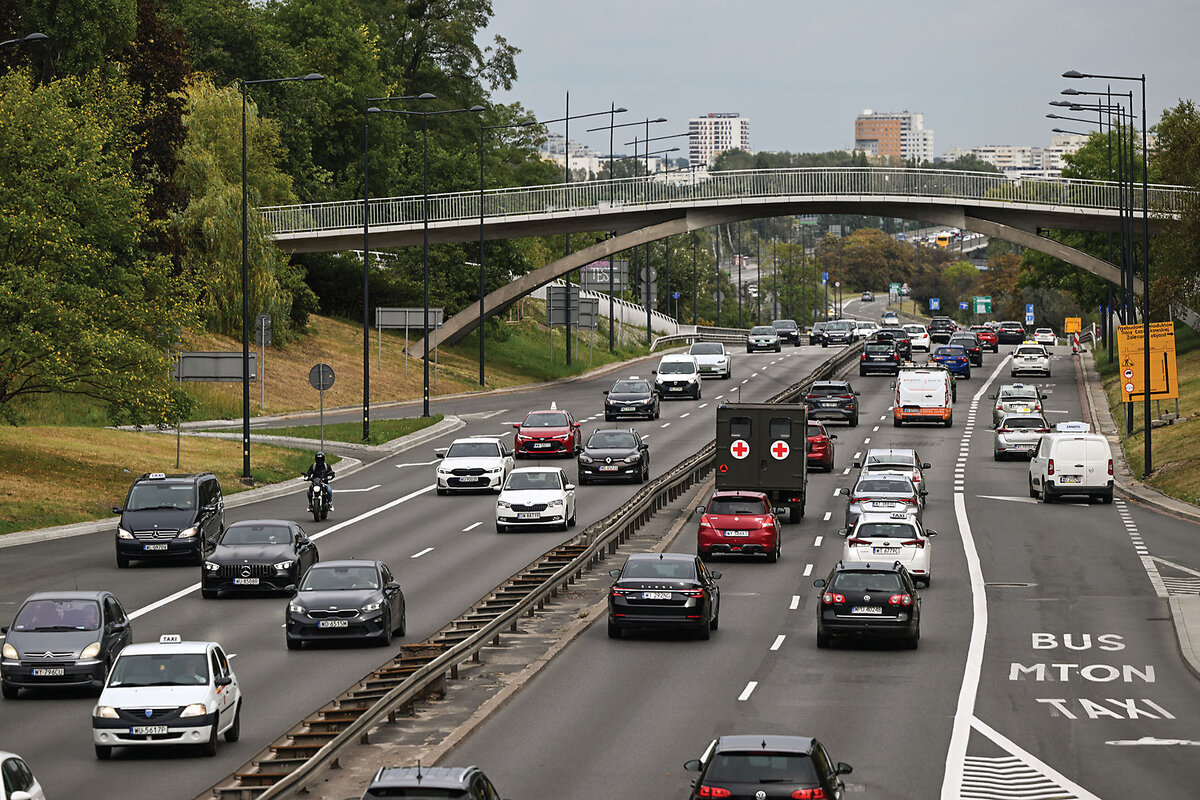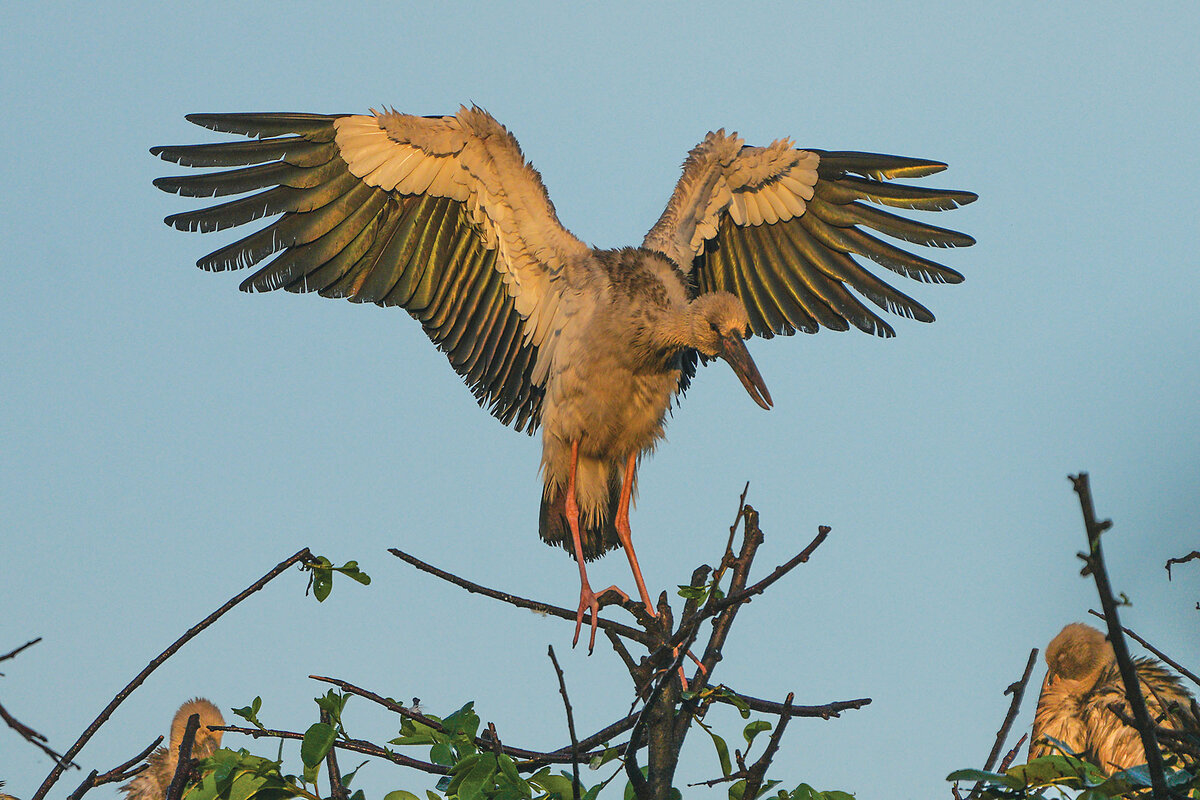From worst to best: How Poland reduces traffic deaths, and Sri Lanka fixes wetlands
Loading...
Road deaths in Warsaw have dropped by over half in the past decade
The streets of the Polish capital were once known as some of the deadliest in Europe. Fatalities hit a peak of 314 deaths in 1991. By 2023, that number had fallen to 29.
To turn things around, the city pinpointed 400 particularly dangerous crosswalks, improved lighting, and raised medians. It built roundabouts and new speed bumps to slow down vehicles. A 2021 law gave pedestrians priority at crosswalks and raised fines for drivers who break traffic laws.
Why We Wrote This
In our progress roundup, prioritizing well-being over convenience produces benefits for people and environments. It’s meant safer streets in Warsaw, Poland; a healthier Sri Lankan capital; and even family members who feel more connected to each other.
While speeding and drunken driving remain issues in Warsaw, the city is committed to the Vision Zero framework, which seeks to eliminate all traffic fatalities and severe injuries. “Not a single death, even in traffic collisions, is acceptable,” says Tomasz Tosza, deputy director of Warsaw’s Department of Road Management. Nationally, road deaths have fallen by 40% since 2014.
Source: Bloomberg Citylab
The lasting effects of shared family dinner
A study conducted in 2021 found that 60% of 517 families surveyed ate dinner together more often compared with before the pandemic.
Many used video calls to include extended-family members in meals, which may foster family bonding, and “children’s feeling a sense of belonging to a larger unit, which we know is protective for their well-being,” said Anne Fishel, a co-author of the study.
Two-thirds reported laughing more together, 59% said they felt more connected to each other around the dinner table, and 60% said they expressed more gratitude. These benefits were visible across income level, education, age, gender, and race. Regular family dinners are linked to better health and success in school among kids and teenagers, and lower rates of disordered eating, substance use, and depression.
Sources: Sciencedaily, Harvard Graduate School of Education
A lost Maya city was discovered under a jungle canopy in Mexico
While only a 15-minute walk from a busy roadway, the ancient metropolis was spotted not on foot but by sifting through aerial scans taken years before for use by ecologists studying trees.
New analysis of Lidar scans revealed a dense network of thousands of structures, including temple pyramids, a palace complex, public plazas, reservoirs, and a court for playing ball sports. Lidar emits laser pulses from an aircraft, allowing for images that penetrate vegetation and reveal the contours beneath.
Valeriana, located in the modern-day state of Campeche, was home to an estimated 50,000 people, likely between A.D. 750 and 850. Researchers say local farmers probably knew about the ruins, which suggest a more complex and widespread Maya civilization than is sometimes described.
“In the era of Lidar,” said Luke Auld-Thomas, the Ph.D. student who discovered the scans, “there are more [hidden cities] than we can ever hope to study.”
Sources: BBC, The New York Times
Businesses and farmers are working together to clean up Kenya’s water supply
The Upper Tana River Basin provides 95% of Nairobi’s drinking water and half the country’s hydropower. But deforestation and farming have polluted the water with sediment and chemicals.
An innovative fund launched by The Nature Conservancy in 2015 connects downstream water companies and breweries with upstream small-scale farmers. The businesses offer tools for farmers to conserve and harvest water, from roof gutters to rainwater storage tanks. The farmers agree to use organic fertilizers and diversify their crops to reduce erosion.
The national government is devoting more resources to water management, but individual farmers play an important role. With 300,000 participating, the fund is estimated to add 27 million liters (7.1 million gallons) of water by the end of the year and save the government $850,000 annually. Forty-three water funds operate worldwide.
Sources: Reasons to be Cheerful, Mongabay
Colombo is restoring wetlands, helping to prevent floods
The capital of Sri Lanka is built on a massive network of marshes and waterways. But as the city has expanded since the 1980s, some 60% of these wetlands have been drained and filled in to make room for construction. Remaining wetlands have been used as dumps.
Wetlands act as natural flood buffers, absorbing waters and regulating the environment. Following destructive flooding in 2010, the government realized it needed to do more to protect what one administrator calls the “lungs and kidneys” of the city.
It began building cycling and jogging paths and recreational areas, pulling up invasive species, and introducing plants that would attract birds and animals back to the wetlands. Neighbors have also gotten together to form associations that collect trash regularly and sort items for recycling. Today, the city is home to four wetland parks that look nothing like the wastelands there before.
Sources: BBC, Bulletin of the Atomic Scientists









